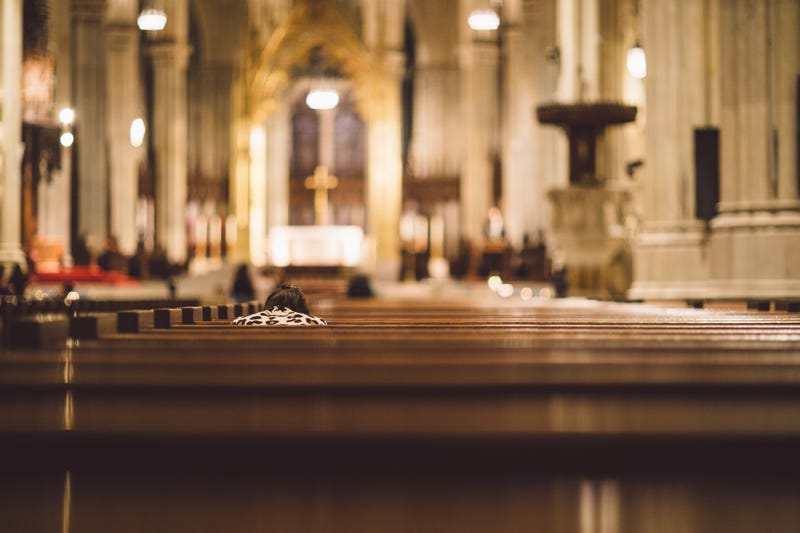
Buffalo, N.Y. (WBEN/AP) - Across the United States, the Catholic Church is undergoing an immense shift.
Generations of Catholics who embraced the modernizing tide sparked in the 1960s by Vatican II are increasingly giving way to religious conservatives who believe the church has been twisted by change, with the promise of eternal salvation replaced by guitar Masses, parish food pantries and casual indifference to church doctrine.
The shift, molded by plummeting church attendance, increasingly traditional priests and growing numbers of young Catholics searching for more orthodoxy, has reshaped parishes across the country, leaving them sometimes at odds with Pope Francis and much of the Catholic world.
The changes are not happening everywhere. There are still plenty of liberal parishes, plenty that see themselves as middle-of-the-road. Despite their growing influence, conservative Catholics remain a minority.
This story is nothing new in the eyes of Bishop Michael Fisher.
"Even our Lord, our dear Lord when he was in his ministry dealt with different factions in the Church. In fact, those factions even came together to crucify Him. The Sanhedrin would be seen sort of as the, maybe you might say, the Conservatives of their day, and the Pharisees were sort of the more progressive people, of the Jewish people," said Bishop Fisher in an interview with WBEN. Of course, they were always debating with each other, and in the Lord, as you know, he confronted both sides. His ministry was a ministry to everyone, and open to everyone. And that's the Church, and we're supposed to be faithful."
Bishop Fisher feels, especially with society in the U.S. being so politically charged, too many people are trying to put the same political template of conservatives and liberals - Republicans and Democrats - on the Church. He feels that's not really the right way to do things.
"We're faithful to the teachings of the Church, which have been handed on to us down through the tradition of the Church," Bishop Fisher said. "The doctrine is always consistent, and we need to be faithful to that. We have certainly a faithful life ethic - the sacredness of all life, the dignity of the human person, the care of all people, particularly the poor. Those aren't liberal/conservative things."
Where Bishop Fisher sometimes believes the controversy lies is over the liturgy.
"The liturgy has come down to us, and sometimes there have been changes. Vatican II, as we know, has tried to center us back on, really, the roots of the Church, but the Holy Father, along with the magisterium of the Church - the bishops, in communion with them - we're called to be faithful, and to protect that tradition and to hand it on, and to make sure that it is celebrated with dignity and fidelity," Bishop Fisher explained.
Bishop Fisher further believes people have to be open to making sure no matter what anyone's personal likes or dislikes might be, they're being faithful to the Church, but welcoming to everybody and being respectful of each other's cultures and traditions.
Despite some Catholic Churches turning toward a more old, traditional way with their teachings, Bishop Fisher does not share any concerns with how that might affect the future direction of the Church, especially here in Western New York.
"We struggle and we debate, and we have our differences. I see differences in music, even in our own personal lives. You might like classical, I might like rock and roll. It's sort of the same in the Church; you've got those that love the Gregorian chant, the hymns in Latin, and then there are those that love the guitar and the piano. I've always felt that if the instrument fits the song, then that's what you use, but as long as the music is uplifting and prayerful," he said.
"We have different rights and different mass settings, and I think the Church, we're always going to have differences. But in the long run, we have to rely also on the Holy Spirit and the guidance, again, the tradition and the magisterium of the Church to help us be faithful to what we're called to do."
As the Church moves forward, Bishop Fisher feels it is important for priests and other leaders to be connected with their congregation, while understanding what it is some are looking for in the Church. He feels it comes down to forming and teaching.
"A Bishop is called to teach, to govern and to sanctify. And teaching is a very important part of our ministry, so making sure that the teachings of our church are clearly stated and understood, I think, is important. And our pastors share in that ministry," Bishop Fisher said.
"What does concern me is we have less priests now. One of the challenges that our pastors, our priests will have will be making sure they're teaching our laity so that they can also be a part of that teaching ministry. Many of them are, certainly they do it as parents, they're the first teachers of their children, and then our teachers in our schools, as well as in our faith formation programs and our parishes. I think we need more of that within our churches. It's a challenge because we have less priests. The more priests you have, I think the more opportunities you have to teach and offer those things to our people.
Bishop Fisher adds he believes there are more people out there hungering to learn more about their faith, which is where he sees hope in the future moving ahead.
"As we look at how we're restructuring and renewing our church here in Western New York, faith formation is an important part of our planning," he said.
